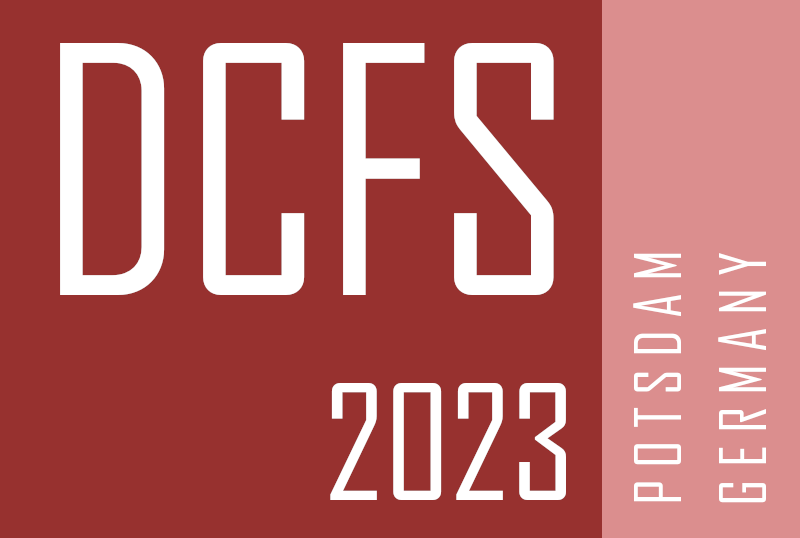
DCFS 2023 - 25th International Conference on
Descriptional Complexity of Formal Systems
July 4 - 6, 2023, Potsdam, Germany
Important Dates
- Submission of Abstract (to EasyChair): March 10, 2023
- Update of submission to Full Conference Paper: March 13, 2023
- Notification of Acceptance:
April 1, 2023April 8, 2023 - Final version for proceedings: April 20, 2023
General Information
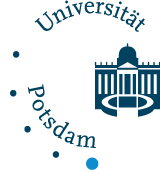 The 25th edition of DCFS is organized by the Department of Computer Science of the
University of Potsdam, Germany, and by the
IFIP Working Group 1.02 "Descriptional Complexity".
The general webpage of the DCFS conference series is available at
http://www.informatik.uni-giessen.de/dcfs/.
The 25th edition of DCFS is organized by the Department of Computer Science of the
University of Potsdam, Germany, and by the
IFIP Working Group 1.02 "Descriptional Complexity".
The general webpage of the DCFS conference series is available at
http://www.informatik.uni-giessen.de/dcfs/.
Proceedings
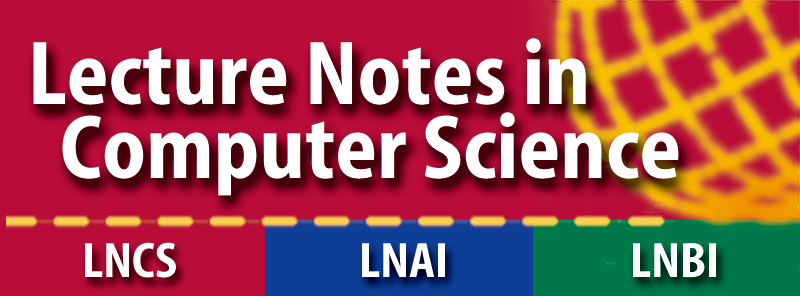
The conference proceedings will appear as an LNCS volume. For all LNCS volumes of the DCFS conference series see SpringerLink: https://link.springer.com/conference/dcfs
Special Issue
A special issue of the journal "Information and Computation" will be devoted to revised and extended versions of selected papers of the conference.
Topics
Original research papers concerning the descriptional complexity of formal systems and structures (and its applications) are sought for DCFS 2023. Topics include, but are not limited to:
- Automata, grammars, languages and other formal systems; various modes of operations and complexity measures.
- Succinctness of description of objects, state-explosion-like phenomena.
- Circuit complexity of Boolean functions and related measures.
- Size complexity of formal systems.
- Structural complexity of formal systems.
- Trade-offs between computational models and mode of operation.
- Applications of formal systems -- for instance in software and hardware testing, in dialogue systems, in systems modeling or in modeling natural languages -- and their complexity constraints.
- Co-operating formal systems.
- Size or structural complexity of formal systems for modeling natural languages.
- Complexity aspects related to the combinatorics of words.
- Descriptional complexity in resource-bounded or structure-bounded environments.
- Structural complexity as related to descriptional complexity.
- Frontiers between decidability and undecidability.
- Universality and reversibility.
- Nature-motivated (bio-inspired) architectures and unconventional models of computing.
- Blum Static (Kolmogorov/Chaitin) complexity, algorithmic information.
Program Committee
- Henning Bordihn (University of Potsdam, Germany) - co-chair
- Szilárd Zsolt Fazekas (Akita University, Japan)
- Henning Fernau (University of Trier, Germany)
- Yo-Sub Han (Yonsei University, South Korea)
- Michal Hospodár (Slovak Academy of Sciences, Košice, Slovakia)
- Szabolcs Iván (University of Szeged, Hungary)
- Galina Jirásková (Slovak Academy of Sciences, Košice, Slovakia)
- Stavros Konstantinidis (Saint Mary's University, Halifax, Canada)
- Orna Kupferman (Hebrew University, Israel)
- Sylvain Lombardy (University of Bordeaux, France)
- Andreas Malcher (Universität Giessen, Germany)
- Carlo Mereghetti (Università degli Studi di Milano, Italy)
- Nelma Moreira (Universidade do Porto, Portugal)
- Dana Pardubska (Comenius Unversity, Bratislava, Slovak Republic)
- Giovanni Pighizzini (University of Milan, Italy)
- Kai Salomaa (Queen's University, Canada)
- Shinnosuke Seki (The University of Electro-Communications, Chofu, Japan)
- Petr Sosik (Silesian University Opava, Czech Republic)
- Nicholas Tran (Santa Clara University, USA) - co-chair
- György Vaszil (University of Debrecen, Hungary) co-chair
Steering Committee
- Cezar Câmpeanu (Charlottetown, Canada)
- Erzsébet Csuhaj-Varjú (Budapest, Hungary)
- Stavros Konstantinidis (Halifax, Canada)
- Martin Kutrib (Giessen, Germany, chair)
- Giovanni Pighizzini (Milano, Italy)
- Rogério Reis (Porto, Portugal)
- Kai Salomaa (Kingston, Canada)
Organizing Committee
- Henning Bordihn (University of Potsdam)
- Tim Richter (University of Potsdam)
- Alexandra Roy (University of Potsdam)
Invited Speakers
- Pascal Caron (Université de Rouen, France):
Operational state complexity revisited: the contribution of Monsters and Modifiers - Friedrich Otto (Univerity of Kassel, Germany):
On the influence of the various parameters of the restarting automaton on its expressive capacity and descriptional complexity - Rogério Reis (Universidade do Porto, Portugal):
Size matters, but let's have it on average - Jürgen Dassow (Otto-von-Guericke University of Magdeburg):
Ceremonial address on the occasion of the 25th edition of DCFS
Program
Monday, July 3
-
18:30Informal Get Together
A table in the typical German pub and restaurant “Unicat” is reserved.
Address: Karl-Liebknecht-Straße 26, 14482 Potsdam (Babelsberg)
Tuesday, July 4
- 08:30 – 09:20Registration in the foyer of house 6 at campus Griebnitzsee, August-Bebel-Straße 89, 14482 Potsdam, near the Griebnitzsee S-Bahn station
- 09:20 - 09:30Opening
- 09:30 - 10:30Operational state complexity revisited: the contribution of Monsters and Modifiers
Pascal Caron (invited talk) - 10:30 - 11:00Coffee Break
- 11:00 - 11:30Operational Complexity: NFA-to-DFA Trade-Off
Michal Hospodár, Jozef Jirasek, Galina Jiraskova, and Juraj Sebej - 11:30 - 12:00Complexity of Exclusive Nondeterministic Finite Automata
Martin Kutrib, Andreas Malcher, and Matthias Wendlandt - 12:00 - 12:30Existential and Universal Width of Alternating Finite Automata
Yo-Sub Han, Sungmin Kim, Sang-Ki Ko, and Kai Salomaa - 12:30 - 14:00Lunch Break
- 14:00 - 14:30Hypercubes and Isometric Words based on Swap and Mismatch Distance
Marcella Anselmo, Giuseppa Castiglione, Manuela Flores, Dora Giammarresi, Maria Madonia, and Sabrina Mantaci - 14:30 - 15:00A Tight Upper Bound on the Length of Maximal Bordered Box Repetition-Free Words
Jean Weight, Trienko Grobler, Lynette van Zijl and Carlyle Stewart - 15:00 - 15:30Construction of a Bi-Infinite Power Free Word with a Given Factor and a Non-Recurrent Letter
Josef Rukavicka - 15:30 - 16:00Coffee Break
- 16:00Ceremonial Address on the Occasion of the 25th Edition of DCFS
Jürgen Dassow - afterwardsBusiness Meeting
Wednesday, July 5
- 09:00 - 10:00Size matters, but let's have it on average
Rogério Reis (invited talk) - 10:00 - 10:30Defying Gravity and Gadget Numerosity: The Complexity of the Hanano Puzzle
Michael C. Chavrimootoo
slides - 10:30 - 11:00Coffee Break
- 11:00 - 11:30On Jaffe’s Pumping Lemma, Revisited
Markus Holzer and Christian Rauch - 11:30 - 12:00Pushdown and One-Counter Automata: Constant and Non-Constant Memory Usage
Giovanni Pighizzini and Luca Prigioniero - 12:00 - 12:30Merging two Hierarchies of External Contextual Grammars with Subregular Selection
Bianca Truthe
slides - 12:30Lunch
- 15:00Long guided tour through Sanssouci Park (approximately 3.5 hours)
Meeting at the Green Gate ( Allee nach Sanssouci/Am Grünen Gitter, 14467 Potsdam) - 16:00Short guided tour through Sanssouci Park (approximately 2.5 hours)
Meeting at the Green Gate ( Allee nach Sanssouci/Am Grünen Gitter, 14467 Potsdam) - 18:30
Thursday, July 6
- 09:30 – 10:30On the influence of the various parameters of the restarting automaton on its expressive capacity and descriptional complexity
Friedrich Otto (invited talk)
slides - 10:30 - 11:00Coffee Break
- 11:00 – 11:30
- 11:30 – 12:00
- 12:00 – 12:30Shortest Accepted Strings for Two-Way Finite Automata: Approaching the 2n Lower Bound
Olga Martynova and Alexander Okhotin - 12:30Closing, Lunch
Conference Venue and Accomodation
Conference Venue
The conference will take place in building 6 (Haus 6) of the Campus Griebnitzsee of the University Potsdam, at the address August-Bebel-Str. 89, 14482 Potsdam. The presentations will be in Seminar room S18 an the first floor.
Here is a Campus plan in pdf format and an interactive map.
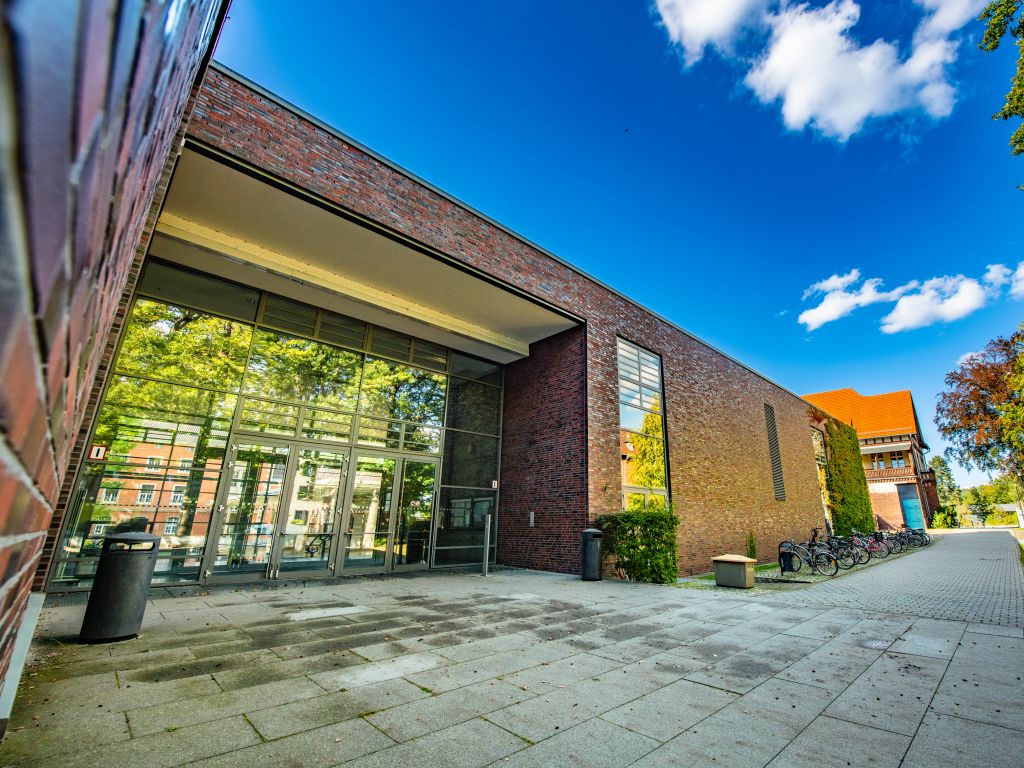
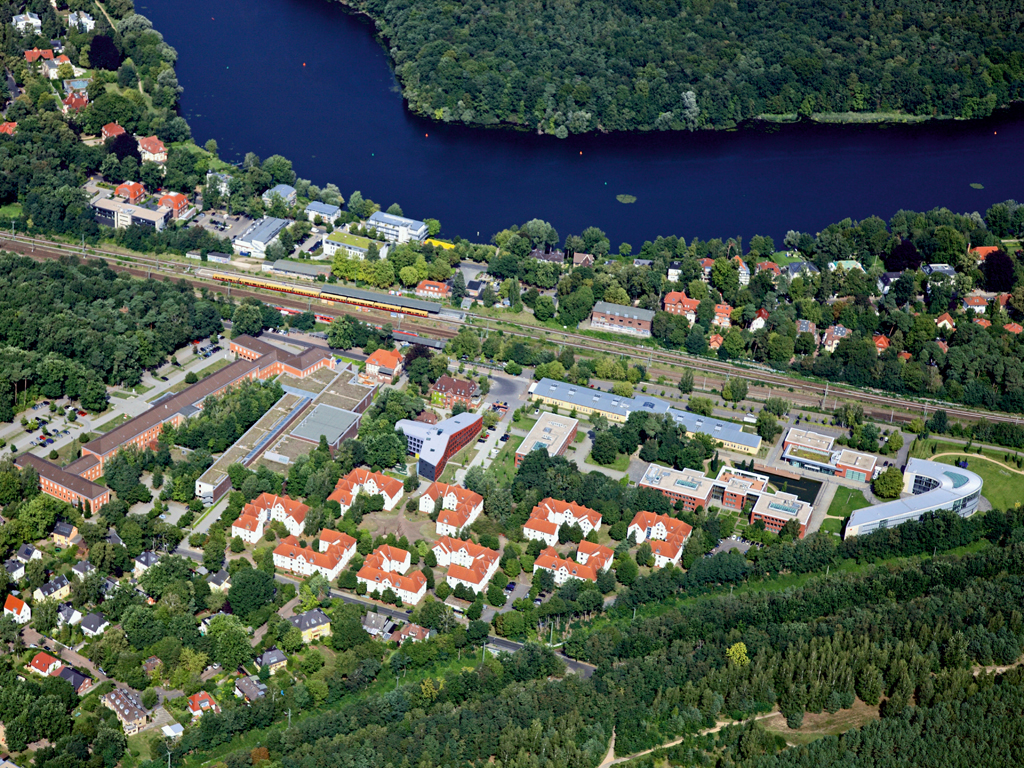
Accomodation
Participants are asked to make their own hotel reservations. Here are some hotels we recommend that are relatively close to the conference venue in Griebnitzsee/Babelsberg.
- Seminaris Hotel Griebnitzsee, Rudolf-Breitscheid-Straße 190, 14482 Potsdam
- Anno 1900 Babelsberg, Stahnsdorfer Str. 68, 14482 Potsdam
- Filmhotel Lili Marleen Potsdam, Großbeerenstraße 75, 14482 Potsdam
If you prefer to stay closer to Potsdam's historic city center, we recommend one of the following hotels.
- Mercure Hotel Potsdam, Lange Brücke, 14467 Potsdam
- MAXX Hotel Sanssouci Potsdam, Allee nach Sanssouci 1, 14471 Potsdam
Host City
Potsdam is the capital of the Federal State Brandenburg in Germany and is located very close to Berlin.
The website "Welcome to Potsdam" has lots of information for visitors.
Here are a few impressions:
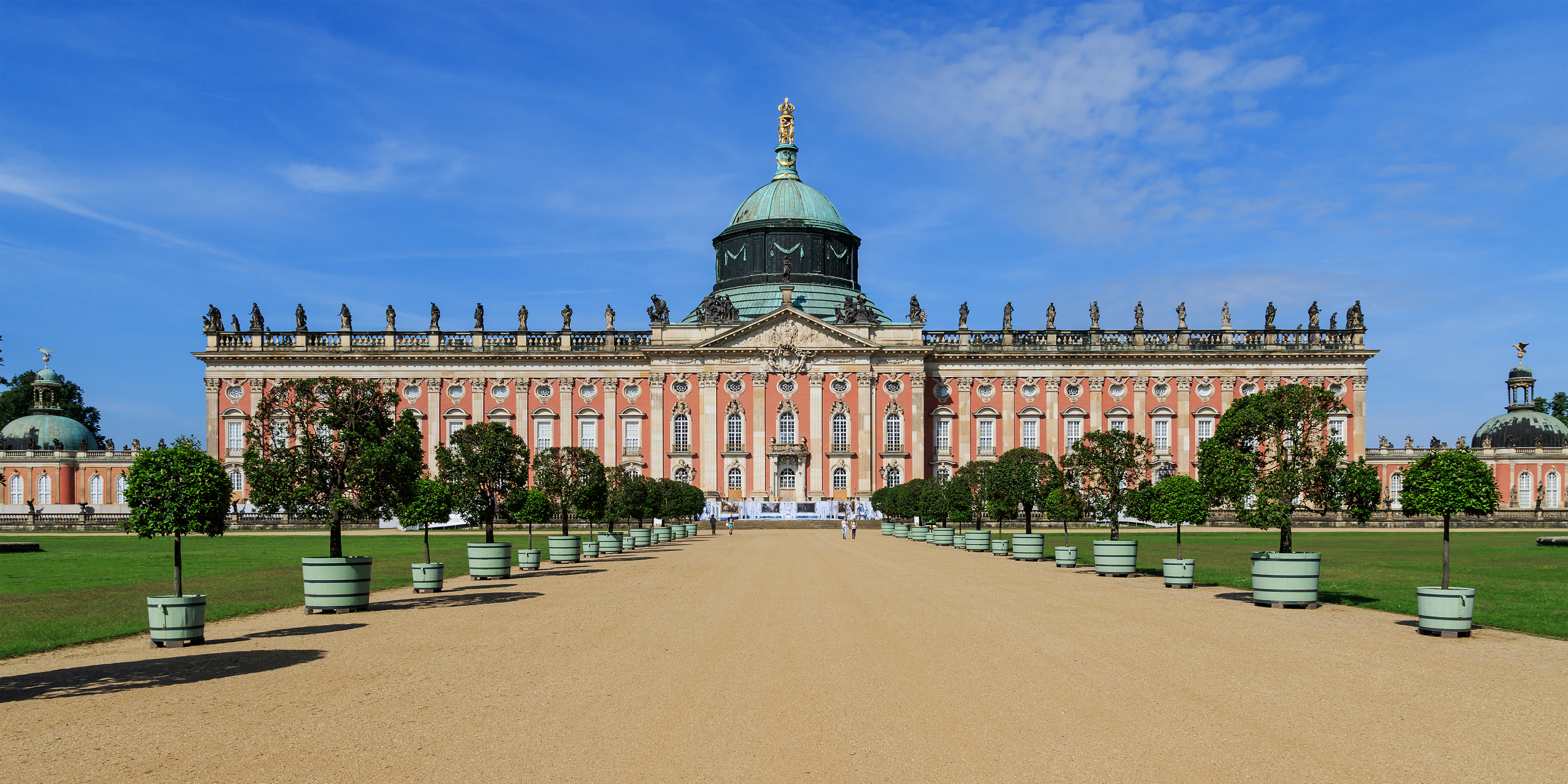
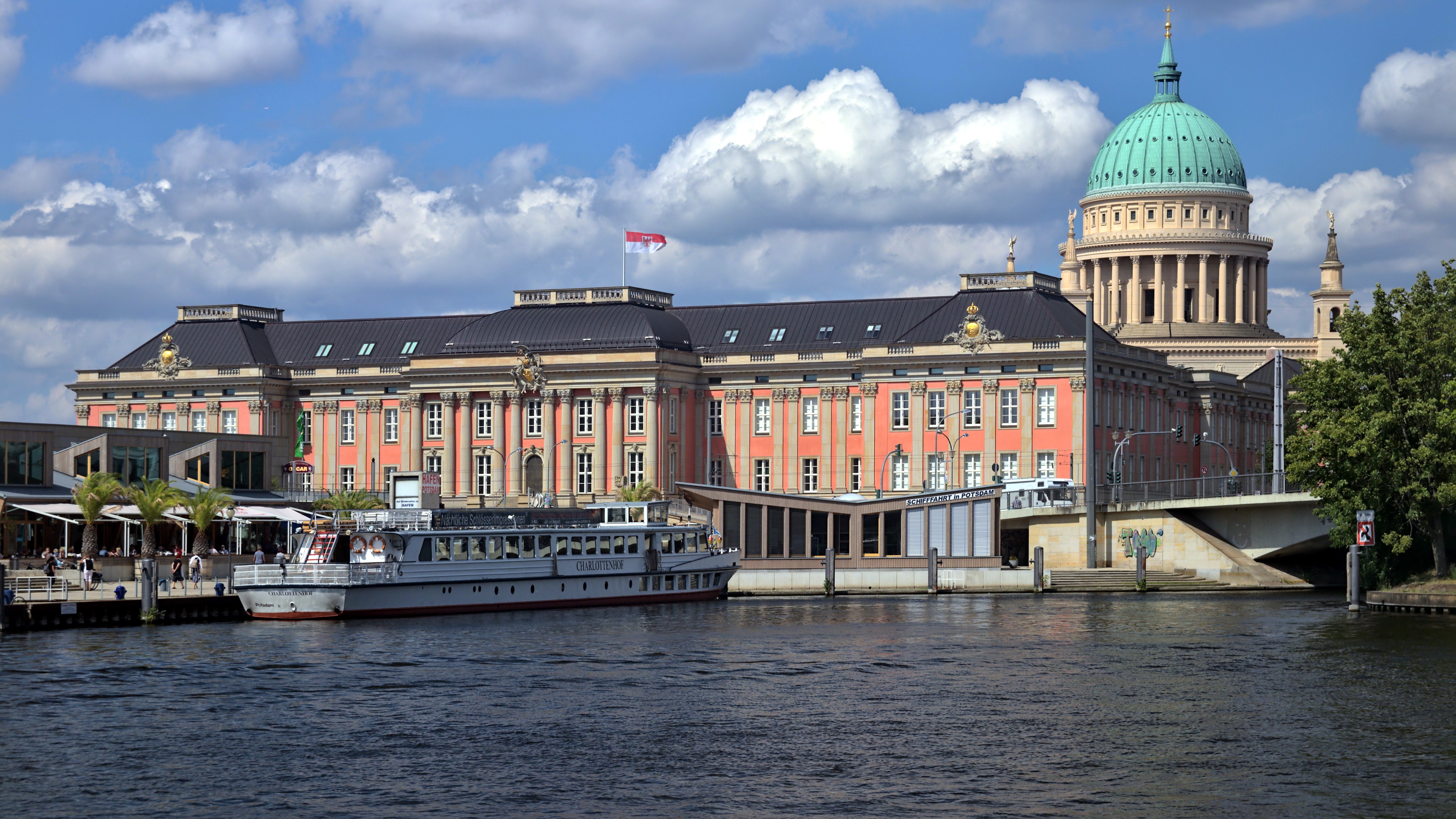
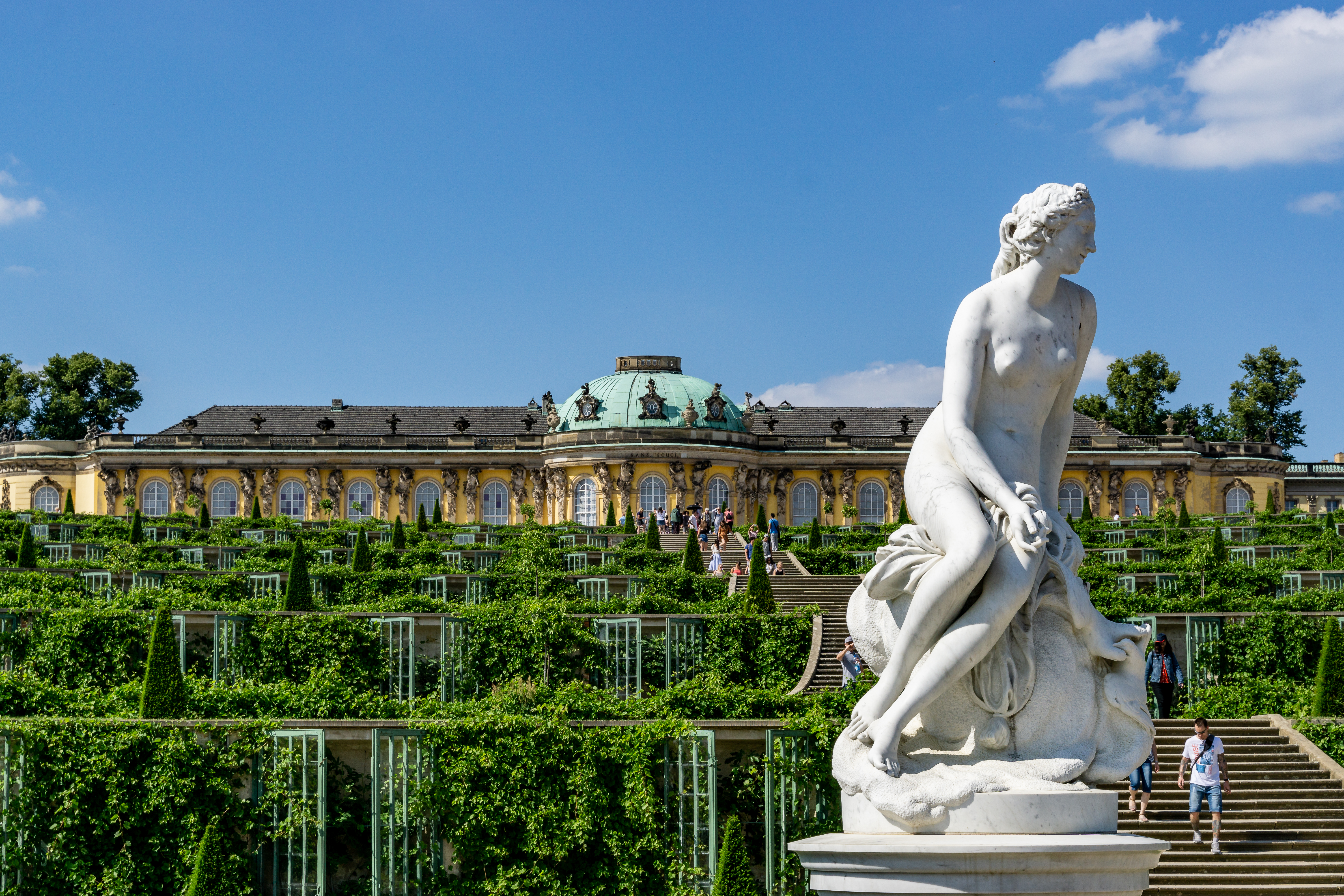
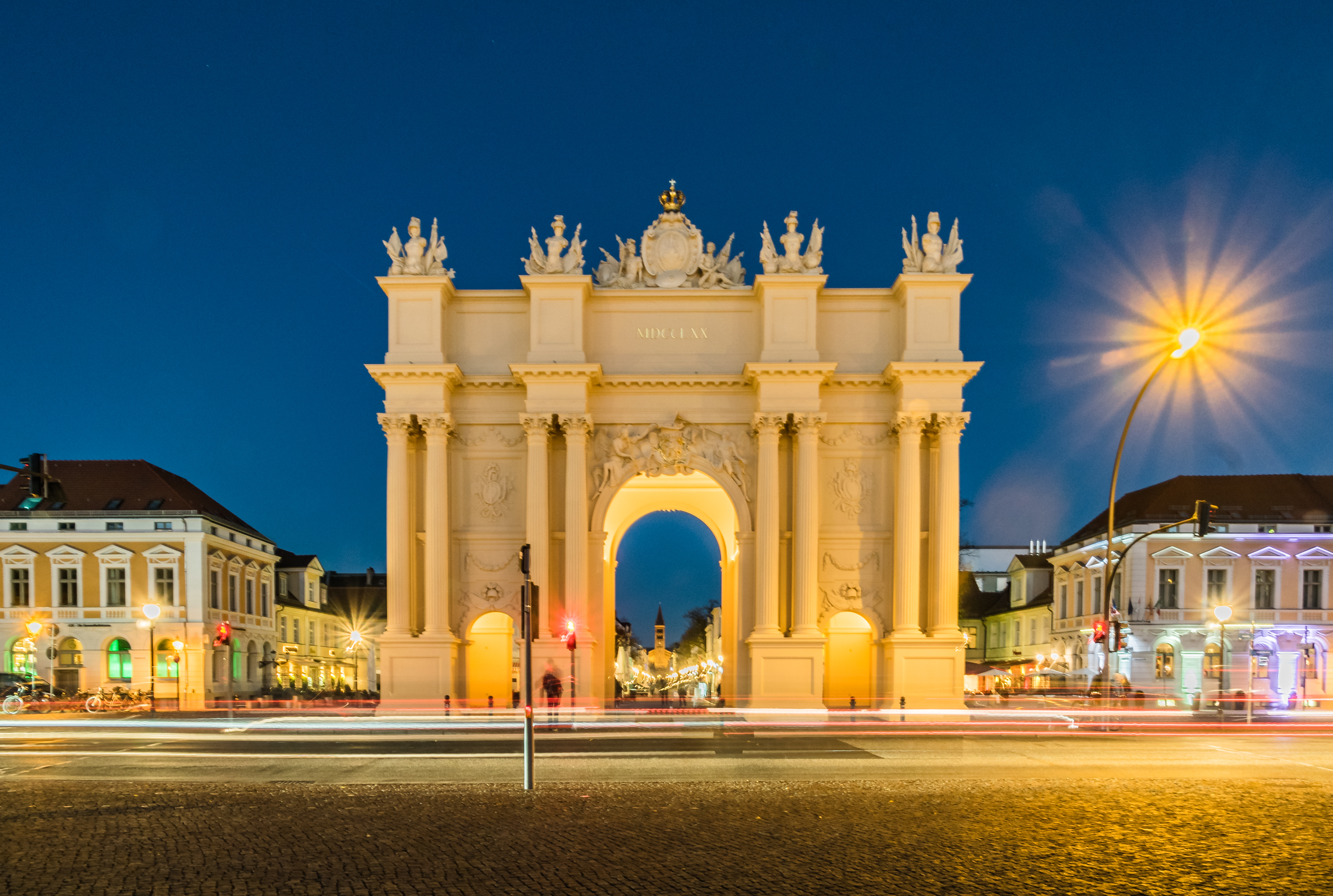
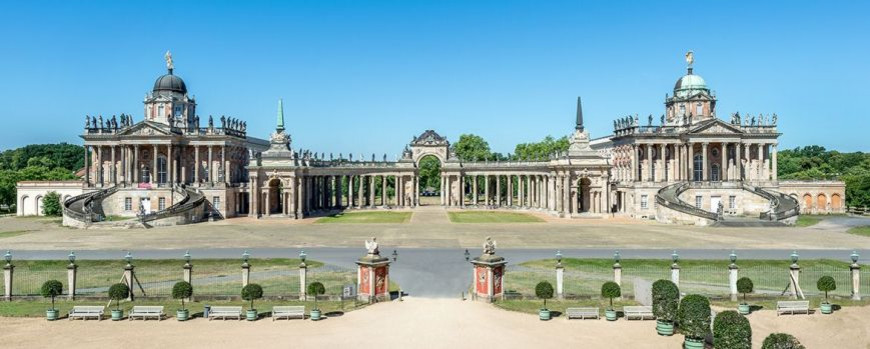
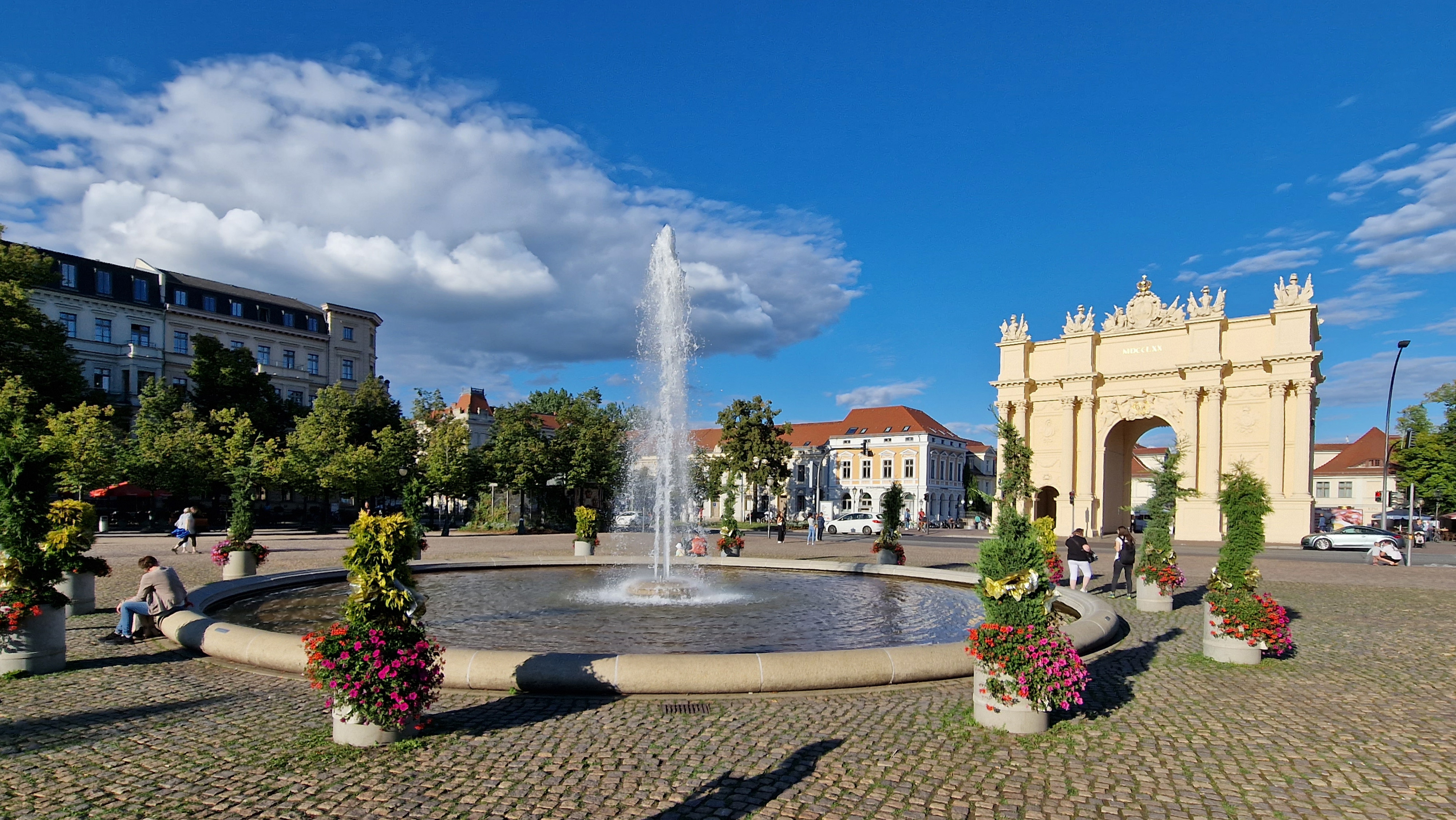
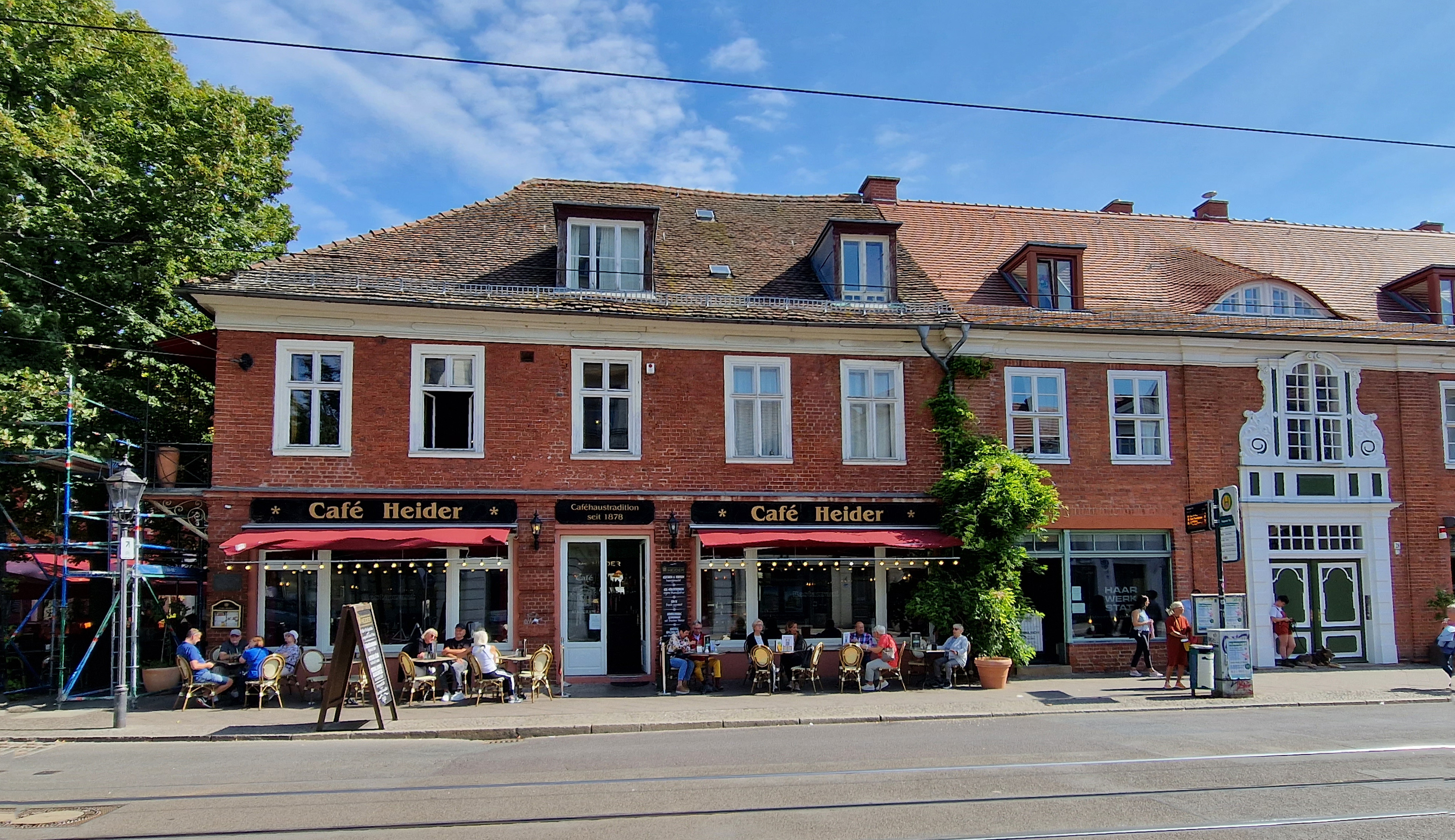
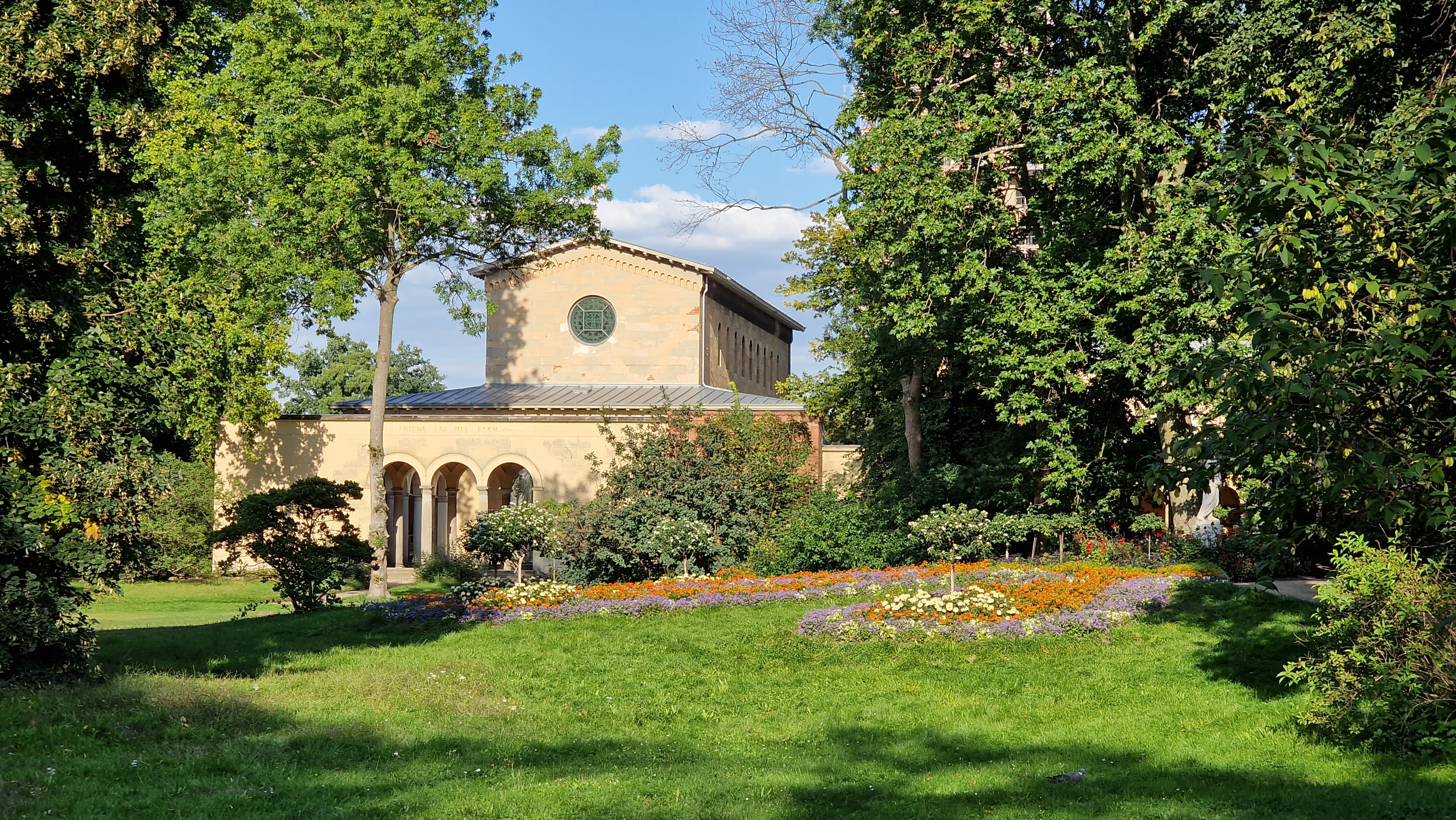
Travel Information
Arriving to Potsdam/ Berlin by plane
The BER Airport is the closest airport to Potsdam. After your arrival there, you can take public transport to Potsdam:
- The regional train line RB22 from BER airport will take you directly to Potsdam Hauptbahnhof (main station).
- Alternatively, one can take one of the train lines FEX to Berlin Hauptbahnhof (main station) or RE8 to Berlin Ostbahnhof, and then continue with the RE1 line or the suburban train (S-Bahn) S7, both of which lead to Potsdam Hauptbahnhof. The S7 will also stop at Potsdam Griebnitzsee where the conference venue is located.
- You can also take the bus line BER2 from BER airport directly to Potsdam Hauptbahnhof during day time.
- If you will arrive at night, you can take the night bus line N60 to Alexanderplatz station in Berlin and continue with the RE1 train or the S-Bahn S7 to Potsdam Hauptbahnhof.
- The suburban train (S-Bahn) S7 between Potsdam Hauptbahnhof and Potsdam Griebnitzsee (conference venue) runs regularly.
Further connections exist. We recommend to install the VBB App (available for iOS and for Android) in order to find the best option (including platform information) when you arrive.
Arriving to Potsdam/ Berlin by train
You may take train line RE1 or, alternatively, the suburban train (S-Bahn) S7 in order to get from Berlin Hauptbahnhof (main station) to Potsdam Hauptbahnhof. The S7 will also stop at Potsdam Griebnitzsee where the conference is located.
How to purchase tickets for public transport
Train tickets can be purchased from the ticket machines located on the platforms. You can also buy your ticket in regional trains and on the bus (but not on the S-Bahn!). You can also buy your ticket online in the VBB App or on the VBB Webpage, the transport association Berlin-Brandenburg company. For the regional trains from BER-airport to Potsdam you need to buy a ticket that is valid for the zones "ABC" in Berlin, for the price of 4 Euros (one way). The ticket is valid for 2 hours. You don't need to reserve a seat. Please pay attention: there are different fare zones in Berlin A, B and C and in Potsdam A, B and C. The best way to find the appropriate fare zone for your ride is to purchase your ticket through the app. The app provides the right fare zone depending on start and destination. A combination of tickets can be purchased at a discounted price per trip. Tickets valid for a certain period of time (e.g. 24 hours) are also available.
Arriving to Potsdam by car
There are no tolls for freeways in Germany. There is no general speed limit on freeways (unless indicated by traffic signs). We recommend checking availability of parking spaces at the hotel in advance.
Photo gallery
Photos and image editing by Thomas Mattheu























 +49 331 977 3042
+49 331 977 3042